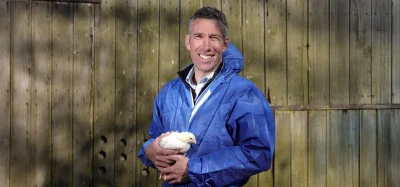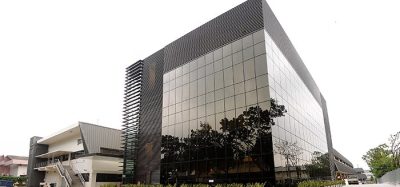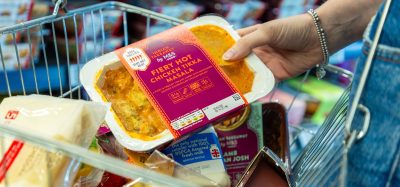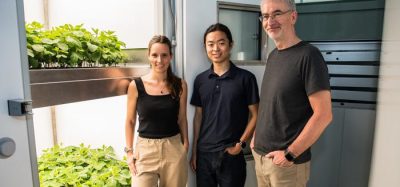Researchers explore impact of insect and microalgae feeds on meat quality
- Like
- Digg
- Del
- Tumblr
- VKontakte
- Buffer
- Love This
- Odnoklassniki
- Meneame
- Blogger
- Amazon
- Yahoo Mail
- Gmail
- AOL
- Newsvine
- HackerNews
- Evernote
- MySpace
- Mail.ru
- Viadeo
- Line
- Comments
- Yummly
- SMS
- Viber
- Telegram
- Subscribe
- Skype
- Facebook Messenger
- Kakao
- LiveJournal
- Yammer
- Edgar
- Fintel
- Mix
- Instapaper
- Copy Link
Posted: 3 July 2020 | Sam Mehmet (New Food) | No comments yet
Animal growth, meat quality, shelf life, and eating quality were investigated and analysed in broiler chickens fed insect and microalgae feeds as part of a University of Göttingen study.
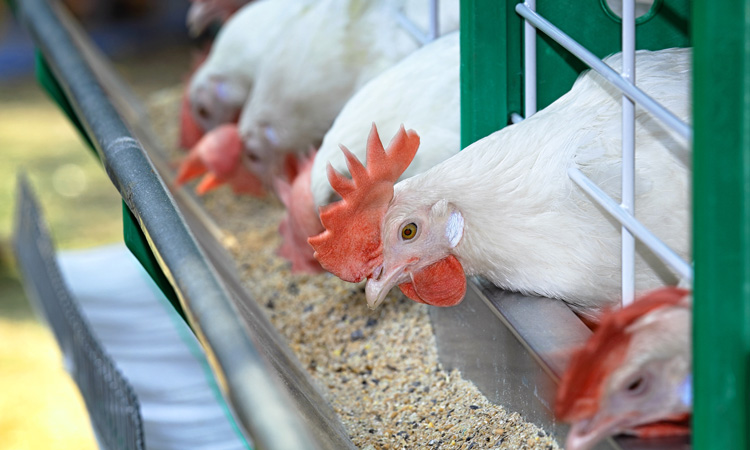

There is a growing global demand for animal products for human nutrition, despite vegan, flexitarian and vegetarian diets becoming more popular in Western countries. Researchers argue that future protein feedstuffs will need to become independent of arable land in order to avoid further land use changes and ecological disruptions, such as deforestation. The cultivation of insects and microalgae are said to be up-and-coming sectors in Germany, as well as globally, to meet these protein demands for humans and animals alike.
In order to find out more about the future of these demands, a research team at the University of Göttingen has investigated whether these alternative protein sources alter typical meat quality.
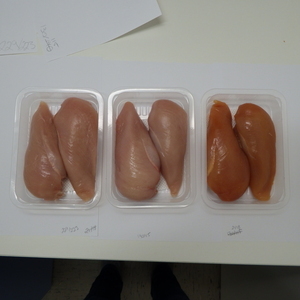

The meat of 132 animals was analysed for the study.
Photo credit: Quality of Animal Products, University of Göttingen
In a study conducted as a part of the project “Sustainability Transitions in the Food Production”, broiler chickens were fattened using feed with the main protein sources being soybean meal, spirulina or insects.
Their results of laboratory testing and sensory (taste-testing) analyses across 132 birds showed that black soldier fly larvae meal and spirulina can be included in poultry feed without negatively impacting quality. Chickens fed with black soldier fly larvae meal produced meat equivalent to the ‘status quo’. Chickens fed with spirulina produce meat with a more intensive colour and flavour.
“Overall, both prove to be potential soybean meal alternatives in the search for new protein sources for animal feed,” explained the study lead researcher, Dr Brianne Altmann.
Microalgae are currently produced globally for biofuel, animal feed, and human consumption; however, they are known to remain more expensive than soybean meal. Currently in the European Union, insects are only authorised for human consumption and for fish feed. In the EU, all insects must be produced using certified animal feedstuffs. However, “sustainability necessitates the incorporation of waste products in the production of insects,” explained Professor Daniel Mörlein, professor for the Quality of Animal Products.
Related topics
Environment, Insect Protein, Quality analysis & quality control (QA/QC), Research & development




